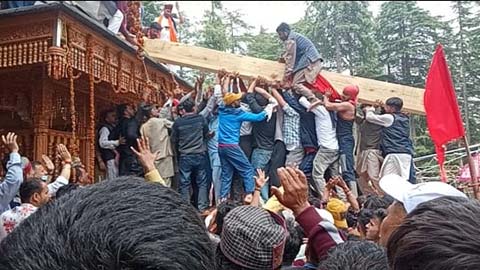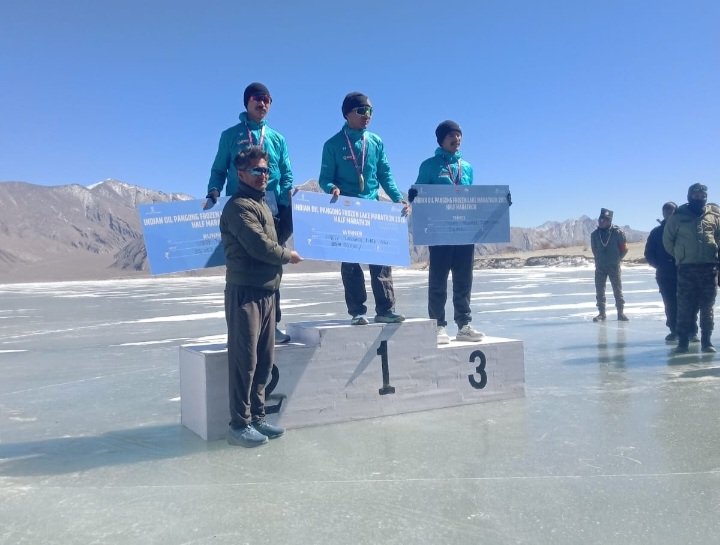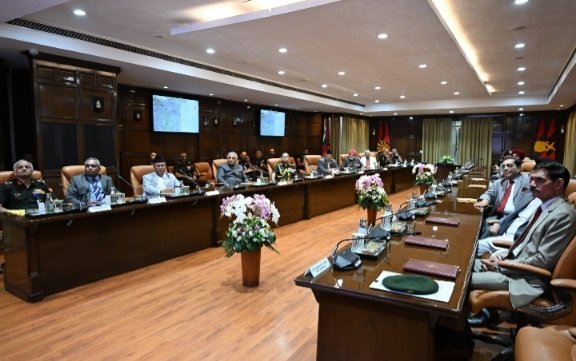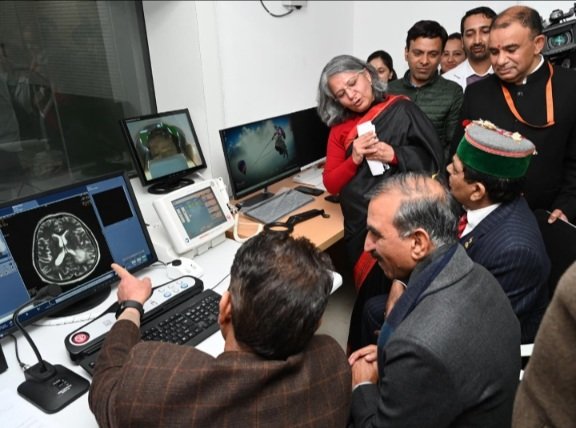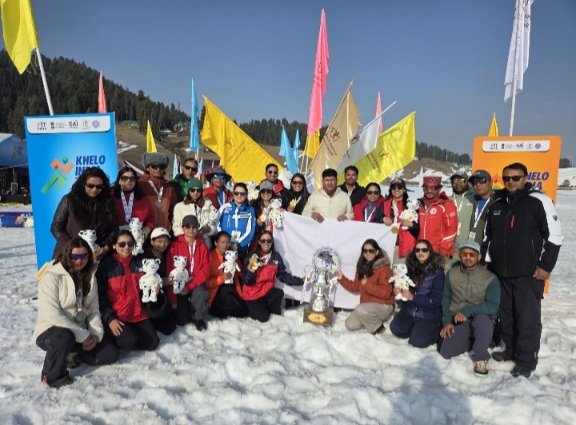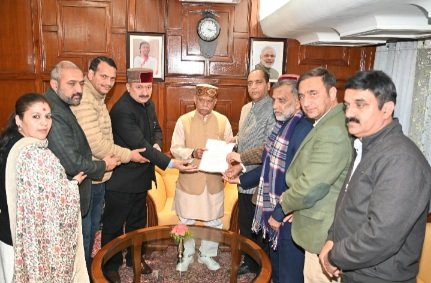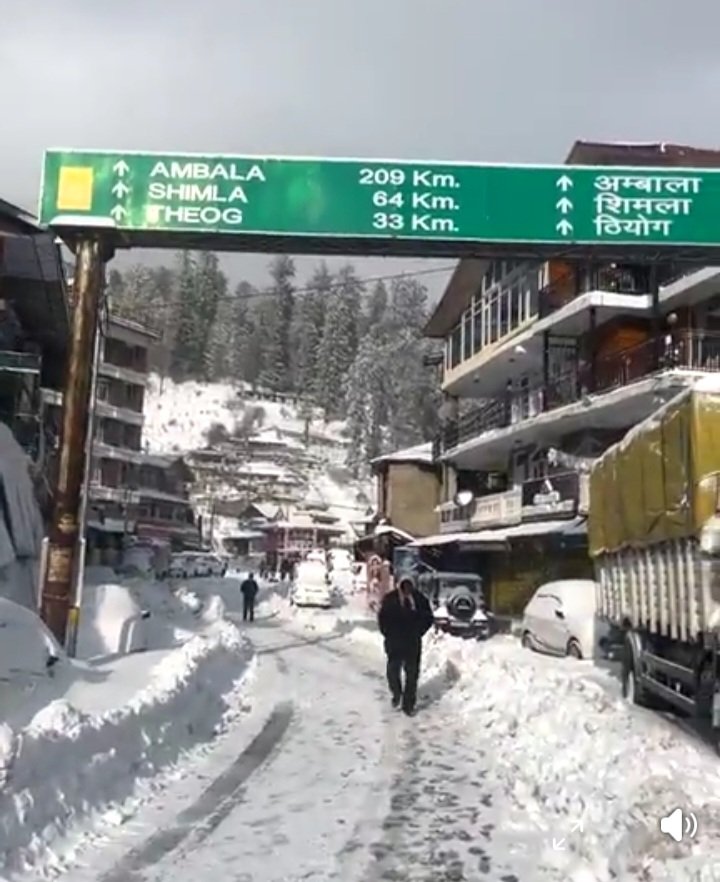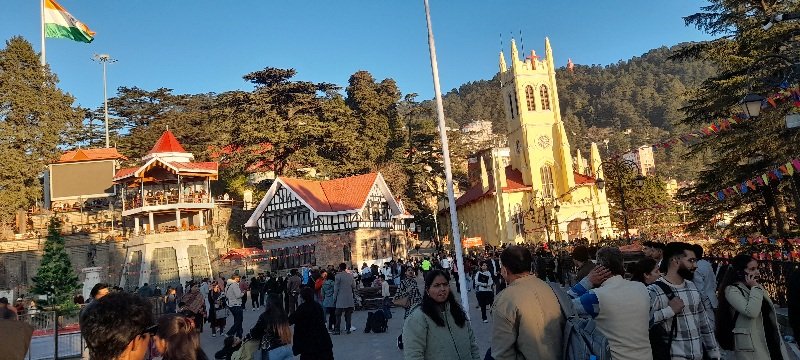CHOPAL: High on faith, a sea of humanity converged at Lankravir temple premises in this beautiful Deodar town of Chopal in Shimla district. Local people from Chanju- Shilli, Manjhotli, Thana and other Parganas have come here for Shaant and Bhagvat to celebrate devta’s historic Kurud ceremony. It invoked cultural connection of Lankravir and Brijeshwari Devi, Nagarkot and Chopal after 76 years.
It was a nine - days long divine extravaganza that attracted devotees from the across the Chanju - Chopal-Manjhoutli, Thana region. Surprisingly, Kurud ceremony was solemnised with a rain shower that brought a relief for people from the long dry spell of two months prevailing in the Apple belt and Himachal as a whole.
Shaant is a mind-boggling divine event for those who don’t understand Himachal’s Dev Sanskriti. But for local believers in Devis and Devta, Kurud ceremony came as once-in-a lifetime ceremony to witness the Vedic rituals and cultural history that bind all hill people together, says Negi Nikka Ram, a senior and retired teacher, devotee of Devta, from Bodhna village.
It all began when a divine procession of devotees converged to the nearby jungle to take the Kurud, a sacred deodar wood panel to adorn the temple top which has been restored and expanded after seven decades. They are led by the Sharjayi, Pujari, Gur, Bhandari- the four pillars of Devta.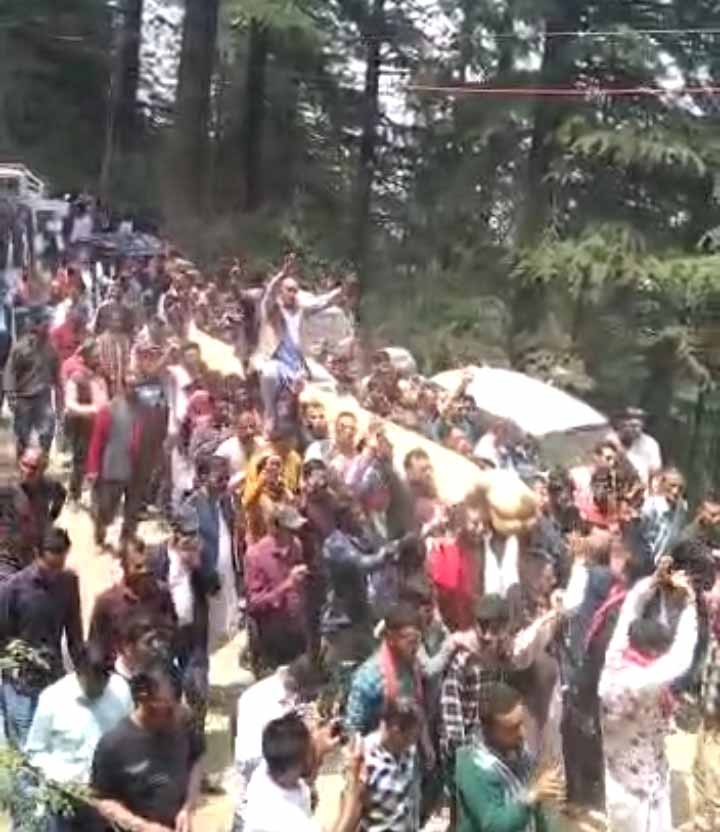
Invoking Bhairav and Religious Frenzy All Around
The procession enchanted slogans with a war-cry - Ho, Ho- invoking ferocious form of Lankravir, a Bhairva who is believed to be a son of Goddess Kali, who is born to kill the demons and evil forces in the region.
They invoke this Form through a set of rituals in front of the Hawankunda. It is done by Sharjayi, Pujari, Gur, Bhandari while Bajantris, the traditional musicians, play the drum beats and Katrnals, Shehnai and HornShinga, musical instruments.
Inside the temples priests play sacred bells, Shankhnad, cymbals that create a ferocious notes yet inspiring soothing sounds, surcharging the entire atmosphere. 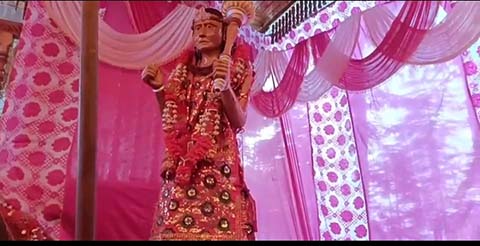
There is a religious frenzy all around. Dozens of women who are possessed of some evil spirits went into an orgy of epileptic seizures. They threw off their Dhatus(scarf), opened heir hairs and tossed around in frenetic seizures.
64 Forms of Kali
It is believed that there exist 64 Forms of Kalis. Many of them are enshrined in the territory of the Devta. They are invoked and invited for the ceremony during the Shaant. They took over and brought out the evil spirits or spells from the possessed bodies.
Kurud is lifted up from the Jungle by the devotees of divine procession, who have to follow strict discipline. The Gurs are in trance, ride the Kurud and set in motion the entire procession that headed for the temple premises.
Then the procession zoomed through the jungle and reached the temple venue, where over tens of thousands people were gathered to witness and be part of the Kurud ceremony, seeking Prasad for prosperity and happiness.
Kurud procession then reached the temple. The carpenters, Sharjayi, Pujaris and Gurs are in action. When the exact Bela (time) came, Kurud is put right on the top of the temple with the Gurs still shivering in trance on the roof as they are believed to be in direct communication with Devtas.
All of the divine gentry fixed the Kurud on the meeting edges of the two sides of the roof of the temple top. Sacred copper, golden and ashtdhatu icons donated by the devotees are also fixed in the Kurud to signify its sanctity.
The priests performed the sacrificial ceremony. Something that borders on hypnotisation, large number of women donated their jewellery or other precious possession to the Acharya, priests or so in a religious fervour.
The women who are in epileptic-like seizures are calmed by the Gurs after they put sacred oblation or grains or Tilak on their forehead. Everything came to a normal life.
It is was estimated that over one kg of gold was donated to the Devta by mainly women devotees. As Sanatan tradition, even Daan (sacrifice) has right time and needs right mental attitude.
As many as 32 Brahmins were performing the Shaant ritual to purify the Lankravir after temple was restored and his divine metallic Barcha (Dagger) was reinstalled Pratishtha) in the sanctum of the temple. There was Ved Vyas, a acharya who was performing the Bhagvat as part of the religious festival.
As a tradition all the nearby devtas- Gauna (Ganpati) of Bodhna village, Shilgur of Garhala and Thana and Bijjat Maharaj of Sarahan were special guest to the Lankravir’s Shaant ceremony.
Lankravir-Nagarkot Brijeshwari Devi Connection
Nobody knows how and who founded the temple of Lankravir in Chopal. But legend has it that Lankravir along with his Goddess mother Kali live in Chopal since the times of the Legendary Pandvas, say the care takers.
Before the Shaat began, a designated group of 100 caretakers of the Lankravir took the icons of devta and devi to Brijeshwari Devi temple, one of the 64 Major Shaktipeeth of Hindus located in different parts of Bharatkhand.
They purified the icons devis and devis at Nagarkot and brought them back for the re-installation (Pratishta) in the revamped sanctum of the temple after 76 years, says Pt Ramesh Sharma, pujari of Lankravir, who comes from Manjhoutli village.
It is believed that Lankravir and Devis are “divine power”, who execute action - it could be Shilgur, Kulla Dev of Bateuri-Shantha. They follow the command of Devta as they are under his direct control.
Balak Ram's Great Carvings and Style Rooted in Antiquity
The three stone-roofed temples complex in Lankravir premises comprises of three shrines done up in ‘Pahari Shilp Shaili’ of Shikar style of temple architecture. The main shrine is devoted to Lankravir, other smaller ones are dedicated to Devi and Mahavir.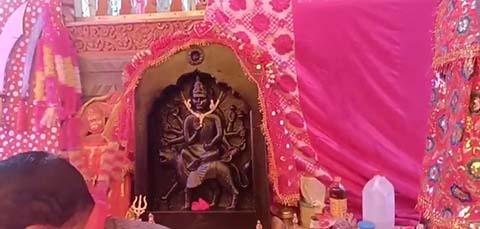
Their original idols were found on a stone slab and were believed to be created by the Pandvas, while they were roaming in the Himalayas. The stone idols still adorn the temple, says Pt Ramesh.
The new idols have been created on a solid stone Shila by a local artist Balak Ram Madhaik that shows his rare craftsmanship. The carvings on wooden panels are legendary, so are the interiors and entrance and ceilings, all done up in wood work by local craftsmen Baby Thanaik and others.
Four Pillars of Devta
In fact, Sharjayi, Pujaris, Mali (Gur) and Bhandari(treasure) are the four care takers of the Devtas in Hills of Shimla district. Sharjayi performs the main rituals of the devta. Pujari performs His daily puja.
Lankravir’s Sharjayi and Pujaris come from the traditional families of Pt Kumbh Das and Pt Ganga Ram, both from Manjhotli village in Chopal. Their ancestors have migrated from Bahal-Bateuri village, the seat of Kula Devta, presiding lord of Shantha Pargna. 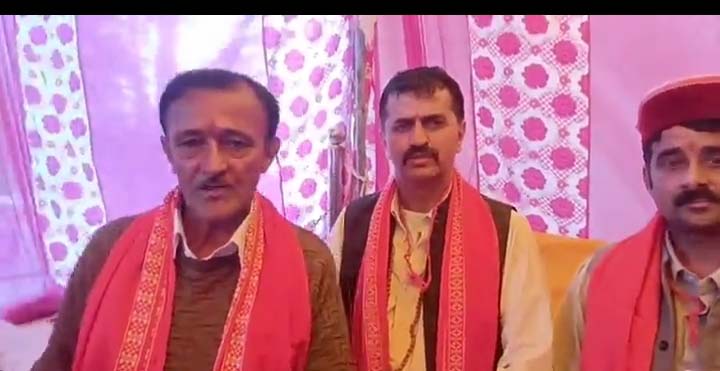
The Gur (Mali) of Lankravir hail from Thanaik Rajput family of Thana village near Chopal. Gur is a man, who observes strict discipline and purity of thought and action (Karma).
Whenever Devta is invoked by the devotees, Gur is in trance, who attains divine Kala (Power) from Devta. He speaks in local dialect and solves intricate problems related to defects in physical personality or sort out disputed or infested property, land, place and house- and everything that needs intervention of devta.
This ceremony is performed when temple wears a new look after it is restored, says Pandit Suresh Sharma, a Kul Purohit of Bateuri-Shantha-Pundar area.




